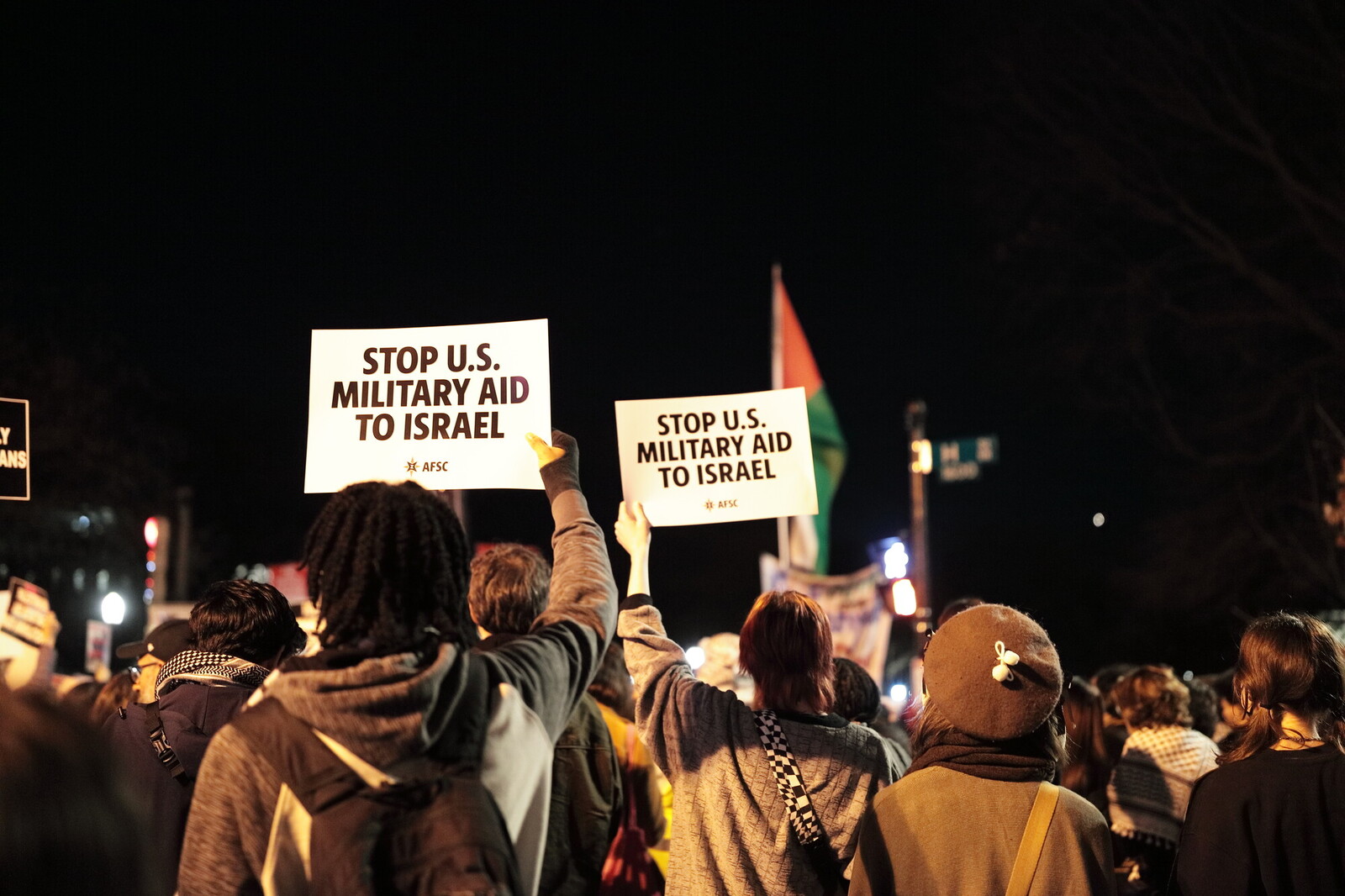
New data has revealed the scale of aid obstruction, and the consequential drastic fall in aid entering Gaza. This is driving a humanitarian disaster, with the entire population of Gaza facing hunger and disease, and almost half a million at risk of starvation.
While Israeli military attacks on Gaza intensify, lifesaving food, medicine, medical supplies, fuel, and tents have been systematically blocked from entering for almost a year.
- Data analysis by organizations working in Gaza has found that as a consequence of the Israeli government's obstruction of aid:
- 83% of required food aid does not make it into Gaza, up from 34% in 2023.This reduction means people in Gaza have gone from having an average of two meals a day to just one meal every other day. An estimated 50,000 children aged between 6-59 months urgently require treatment for malnutrition by the end of the year.
- 65% of the insulin required and half of the required blood supply are not available in Gaza.
- Availability of hygiene items has dropped to 15% of the amount available in September 2023. One million women are now going without the hygiene supplies they need.
- Only around 1,500 hospital beds in Gaza remain operational, compared to around 3,500 beds in 2023 which was already well below sufficient to meet the needs of a population of more than 2 million people. By comparison, cities of similar size, such as Chicago and Paris average 5 to 8 times more beds than in Gaza.
- 1.87 million people are in need of shelter with at least 60% of homes destroyed or damaged (January 2024). Yet tents for around just 25,000 people have entered Gaza since May 2024.
A record low average of 69 aid trucks per day entered Gaza in August 2024, compared to 500 per working day last year; which was already not enough to meet people’s needs. In August more than 1 million people did not receive any food rations in southern and central Gaza.
Now, only 17 out of 36 hospitals remain partially functional. Critical infrastructure such as water networks, sanitation facilities and bread mills have been razed to the ground.
While humanitarian needs are ever increasing, agencies have detailed six main ways their life-saving aid is systematically obstructed on a daily basis.
These include the denial of safety, with more than 40,000 Palestinians and nearly 300 aid workers killed since last October; the sharp tightening of a 17-year blockade to a full siege, which prevents aid from entering Gaza; delays and denials which restrict the movement of aid around Gaza; tightly restrictive and unpredictable control of imports; the destruction of public infrastructure such as schools and hospitals; and the displacement of civilians and humanitarian workers (witnessed again in recent displacement orders from the so-called “humanitarian zone” in Deir el-Balah.)
Ahead of the UN General Assembly in New York this week, aid agencies are calling on governments to demand Israel end aid obstruction and to:
- Secure an immediate and lasting ceasefire in Gaza.
- Implement an arms embargo and end the export of weapons and military equipment that risk being used in violations of international humanitarian law and human rights law.
- Demand compliance with the International Court of Justice’s findings and recommendations, an end to the Israeli government’s siege of Gaza, and heed the call of the ICJ in its advisory opinion to end the occupation of Palestinian territory.
Jolien Veldwijik, CARE Country Director in the West Bank and Gaza, said:
“The situation was intolerable long before last October’s escalation and is beyond catastrophic now. Over 11 months, we have reached shocking levels of conflict, displacement, disease and hunger. Yet, aid is still not getting in, and humanitarian workers are risking their lives to do their jobs while attacks and violations of international law intensify. Aid, which is urgently required for 2.2 million people at risk of dying in the coming weeks and months, should never be politicised. We demand an immediate and sustained ceasefire, and the free flow of humanitarian aid into and throughout Gaza.”
Amjad Al Shawa, the director of the Palestinian NGOs Network (PNGO), an umbrella organisation of 30 Palestinian NGOs and a partner of ActionAid, said:
“There is a shortage of all humanitarian items. We are overwhelmed [with] these needs and [these] urgent requirements...People [are] starving due to the shortage of aid...100% of the population depend on humanitarian aid...It's the worst situation that we [witnessed] during .... the Israel war in Gaza.”
Notes to editors
A short video introducing aid obstruction, narrated by aid worker Bushra Khalidi: https://www.instagram.com/reel/C_uuyDuI17p/?igsh=amR2eTR6ejQydHhl.
A quote pack from people affected by aid obstruction in Gaza
An explanation of the methodology used to gather the data: https://www.careevaluations.org/evaluation/aid-obstruction-in-gaza/
Most recent humanitarian access snapshots: https://reliefweb.int/report/occupied-palestinian-territory/gaza-humanitarian-access-snapshot-5-27-august-10-september
Spokespeople including aid workers on the ground, medical professionals, and humanitarian sector leaders are available for comment and interview on request.
For broadcasters: footage from Gaza is available on request.
Signed on:
- CARE International
- Save the Children
- ActionAid
- Christian Aid
- War Child
- Islamic Relief
- HelpAge International
- American Friends Service Committee
- Oxfam
- DanChurchAid
- Norwegian Church Aid
- Mennonite Central Committee
- Danish Refugee Council
- Norwegian Refugee Council
- KinderUSA
###
The American Friends Service Committee (AFSC) promotes a world free of violence, inequality, and oppression. Guided by the Quaker belief in the divine light within each person, we nurture the seeds of change and the respect for human life to fundamentally transform our societies and institutions. We work with people and partners worldwide, of all faiths and backgrounds, to meet urgent community needs, challenge injustice, and build peace.